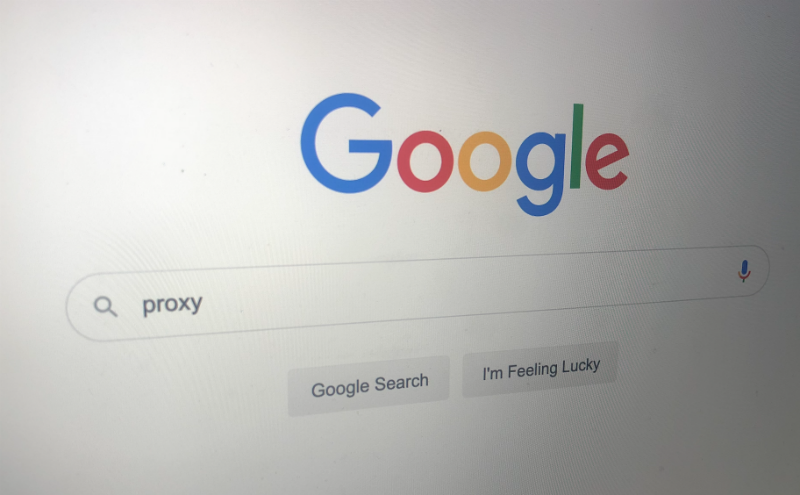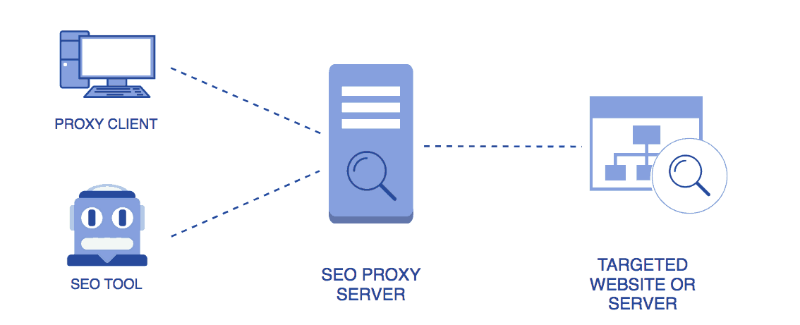
Earlier in our blog, we already looked at real-life scenarios for using proxy technology to solve information security and data collection tasks . But in fact, its applications are not limited to this. Proxies very often use marketing and SEO companies to promote sites.
Let's talk about why proxies are needed for this, what difficulties may arise in the application of technology, and how to get around them.
Why do we need proxies to promote a site?
For successful website promotion in search engines, companies that promote customer sites need to solve a number of problems:
- Competitive intelligence . Before you begin to create a semantic core and develop a website promotion strategy, you need to analyze the activity of competitors. What keywords they use, how they work with content, which advertisements they run - this data needs to be analyzed.
- Data collection . In addition to the activity of competitors, it is often necessary to collect real-time data on the state of affairs of a particular site - changing positions, position in the results in different regions and countries, and other similar metrics.
- Social media marketing . For the promotion of the site usually play a large role social networks. With their help, links to site content can be disseminated to a large audience.
- Fast loading . Search engines lower websites that are slowly loading.
SEO proxies are used to bypass the filters and restrictions that are imposed by search engines, the owners of competitor sites. In addition, the use of SEO-proxy servers helps to speed up the loading of the site in users browsers.
In addition, if the agency manages a large number of corporate pages in one social network, a proxy is required for normal operation.

What could go wrong: problems of different types of proxies
Not all proxies are suitable for successfully solving the tasks described above. Conventional free proxies will not work because of their own limitations, and unstable quality of work.
In turn, simple private proxies also will not work. Such proxies are called server proxies. When using them, IP addresses are issued by cloud service providers. These addresses are in no way associated with home Internet service providers.
Server proxies are used to hide the real IP address or bypass content blocking based on geodata, as well as to encrypt traffic. Often, certain web services restrict access to users from certain countries, such as Netflix. Users from such locations using server proxies can obtain an IP address in the USA and bypass the block. But such proxies are not suitable for SEO tasks.
To understand why, you need to consider specific examples. Suppose a marketer needs to analyze the SEO of a competing site: gather information about which keywords they use to promote and which pages they are actively optimizing.
To do this, you will need to “pump out” this data using an automated script - this tactic is called web scraping.
At this stage, it may turn out that the site owners, like the search engine, are not at all happy with the fact that someone is trying to download data. The activity of your bot will probably be blocked. Usually, server IP addresses are used for such scrappers to work without serious network rotation (that is, changing them regularly). It is not difficult to calculate and block the bot in such a situation.
And this is even the best option, because there are cases when business owners tend to mislead competitors and “slip” their data to scam bots. If you make business decisions based on such data, you can incur serious losses. In the case of SEO, for example, incorrect data can lead to incorrect competitive analysis results, as a result of which the company will spend money on promotion, but will not achieve results.
What to do with it
You can solve these problems by using resident proxies to scrape data. Unlike server IPs that are provided by hosting providers, which can be easily automatically tracked using a special ASN number, it is not so simple with resident proxies.
Resident IPs are issued to homeowners by Internet providers. Corresponding marks are put in all related databases. There are special services of resident proxies that allow you to use resident addresses. Infatica is just such a service.
The requests that crawlers send from resident IPs look like they are coming from regular users from a specific region. But no one blocks ordinary visitors - this is the audience that sites monetize.
As a result, the use of rotated proxies from Infatica allows us to guarantee the quality of the data collected for SEO tasks - no one will block requests from scrapers from resident addresses.
Conclusion
Proxies are an excellent tool for solving many tasks of search engine promotion sites. With their help, marketers and website owners can receive data for tests and experiments (both from search engines and websites), analyze the results of geo-search results (especially relevant for international companies).
Using rotated proxies from Infatica allows us to guarantee the quality of the data collected and geographical coverage - no one will block requests from scrapers from resident addresses, and more than 100 countries and regions are available in the system to get IP.